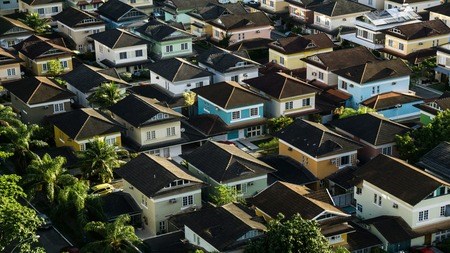For the second meeting in a row, the South African Reserve Bank’s (SARB) Monetary Policy Committee (MPC) decided to increase the repo rate – this time by 75 basis points. Three of the five MPC members voted in favour of the 75-basis point hike, whereas the other two would have preferred a 100-basis point increase.
The latest increase was in line with expectations of most economists and brings interest rates back to the level of January 2020 - before the SARB drastically reduced interest rates to strengthen the economy during the lockdown period.
The new repo rate of 6.25% brings the prime rate up to 9.75%, which means the monthly instalments on a R2 million home loan will go up by close to R1 000. Since November 2021, monthly payments on bonds of R2m have increased by around R3 700 due to the MPC’s repo rate increases.
At the MPC meeting, SARB Governor, Lesetja Kganyago, said that risks to the inflation outlook are assessed to the upside.
"While global producer price and food inflation have eased, Russia’s war in the Ukraine continues, with adverse effects on global prices. Oil prices increased strongly from the start of the war to around US$130 a barrel and may rise again as stresses in energy markets intensify. Electricity and other administered prices continue to present clear medium-term risks."
The SARB is under pressure to keep up with interest rate hikes in other countries - including the United States, where rates were recently hiked by 75 basis points.
Industry comment
Samuel Seeff, chairman of Seeff Property Group, says: “We would have preferred a hike of just 50bps, but the 75bps hike is no surprise. A 100bps hike would have been too high under the present conditions. The SARB now needs to signal when the hiking cycle will come to an end and when we can expect rates to start coming down again.
“We are beginning to see a two-paced market emerge. Although demand is still high, buyers are more hesitant, and deals are taking much longer. Aside from the spiking interest rate, the deteriorating conditions in the country are not helpful. The power outages combined with poor economic data and macro events including the Ukraine crisis could be compounding buyer hesitancy.”
Adrian Goslett, regional director and chief executive of RE/MAX of Southern Africa, says the impact of the current interest rate hikes might only be felt in 2023, especially if interest rates continue to climb at the next few MPC meetings.
“Property market activity is still unusually high even after the last interest rate hike. Many parts of the country are experiencing a seller’s market where demand far outweighs supply. This is possibly because interest rates were still lower than before the Covid-19 lockdowns. The effects of the latest interest rate hike might only be felt after home owners have had a few months of paying the higher instalments.”
Dr Andrew Golding, chief executive of the Pam Golding Property group, says the 75bps increase in the repo rate is disappointing for aspirant homeowners requiring credit and existing homeowners with mortgages.
“Consumers are already having to contend with severe load shedding, rising fuel and food costs, and increasing electricity bills and other municipal tariffs. Although the current rising interest rate environment and the pressure on household disposable income from renewed price pressures are headwinds for the housing market, the fact that banks retain their appetite to extend mortgages provides the market with a solid underpinning. It is anticipated that we are nearing the end of the repo rate upward cycle, and over decades residential property has retained its appeal as a sound medium to long-term investment.”
Berry Everitt, chief executive of the Chas Everitt International property group, says: “Whenever the central banks of countries with stronger currencies such as the dollar or euro raise rates, the SARB has little choice but to follow suit to keep the rand competitive in attracting investment.
"However, in SA, the increases in rates since November last year are having the desired effect of reducing the inflation rate and hopefully moving it back to the 4,5% midpoint of the SARB's target range. Overall, we believe the SARB is doing a good job of balancing the risks of inflation and recession, which can arise from rates being increased too much. We also think any further increases will be smaller and that the economy will be in a stronger position in world terms by 2023."
Tony Clarke, managing director of the Rawson Property Group, says: “The MPC members know fully well the financial pressure consumers are under and how raising interest rates will affect them in the short term. But they also know how much worse things could get if inflation is left to spiral out of control.
“Homeowners will definitely start feeling the pinch as their bond repayments continue to climb, alongside the rest of their everyday expenses. For some, there are going to be very difficult decisions ahead. Most households have very few luxuries left to cut back.
“Despite some relief in the form of September’s petrol price decrease, this rate hike will doubtless push some homeowners past the point of no return if their finances are not in order. We expect to see an increase in distressed sales by homeowners who are no longer able to service their debt. This is always a heartbreaking situation, but it doesn’t have to be a life-altering financial loss if properly managed.”
Yael Geffen, chief executive of Lew Geffen Sotheby’s International Realty, says property owners and consumers in general, are now at breaking point.
“The rate increase in July was the highest single rise in nearly 20 years, and that put massive pressure on South Africans, who at the time were already dealing with huge increases in the basic cost of living and the previous rates hikes imposed earlier in the year.
“Now, with another hike of 75 basis points, the cost of servicing a bond of R2 million has increased by around R3 700 since November 2021. People on fixed incomes are going to start losing their homes.
“The property sector is a significant contributor to the economy, and while the government needs to hedge against inflation, it also needs to protect homeowners.”
Inflation
Jacques Celliers, chief executive of FNB, says the SARB and numerous other central banks around the world are attempting to mitigate the effects of higher inflation.
“Although the effects of these actions may appear to be negative for consumers, the effects of escalating inflation are significantly more severe. This is an ideal time for consumers and businesses to take advantage of higher investment rates and minimise consumption-driven credit usage.
"The recent FNB/BER Consumer Confidence Index revealed a slight increase in consumer confidence in South Africa, and consumers have also experienced some relief due to decreases in fuel prices. However, South Africa must act swiftly to address issues like the intermittent power supply, which continues to derail the country's economic growth prospects.”
Mamello Matikinca-Ngwenya, FNB chief economist, says: "The MPC’s continued aggressive policy of rate hikes was in line with our and the Bloomberg consensus expectations. The aggressive rate increase came despite the economy declining by 0.7% quarter on quarter in the second quarter of 2022 and reflects the MPC's drive to contain inflation expectations over the medium-term.
“We expect the SARB to increase the repo rate by 50bps at the November MPC meeting, pushing it to 6.75%, the level where we think the repo rate will peak before falling in early 2024. The continuation of aggressive rate increases is partly underpinned by aggressively tightening global financial conditions, the weaker domestic currency and domestic wage pressures as workers demand higher wages to compensate for the higher cost of living.”
Writer :Sarah-Jane Meyer





